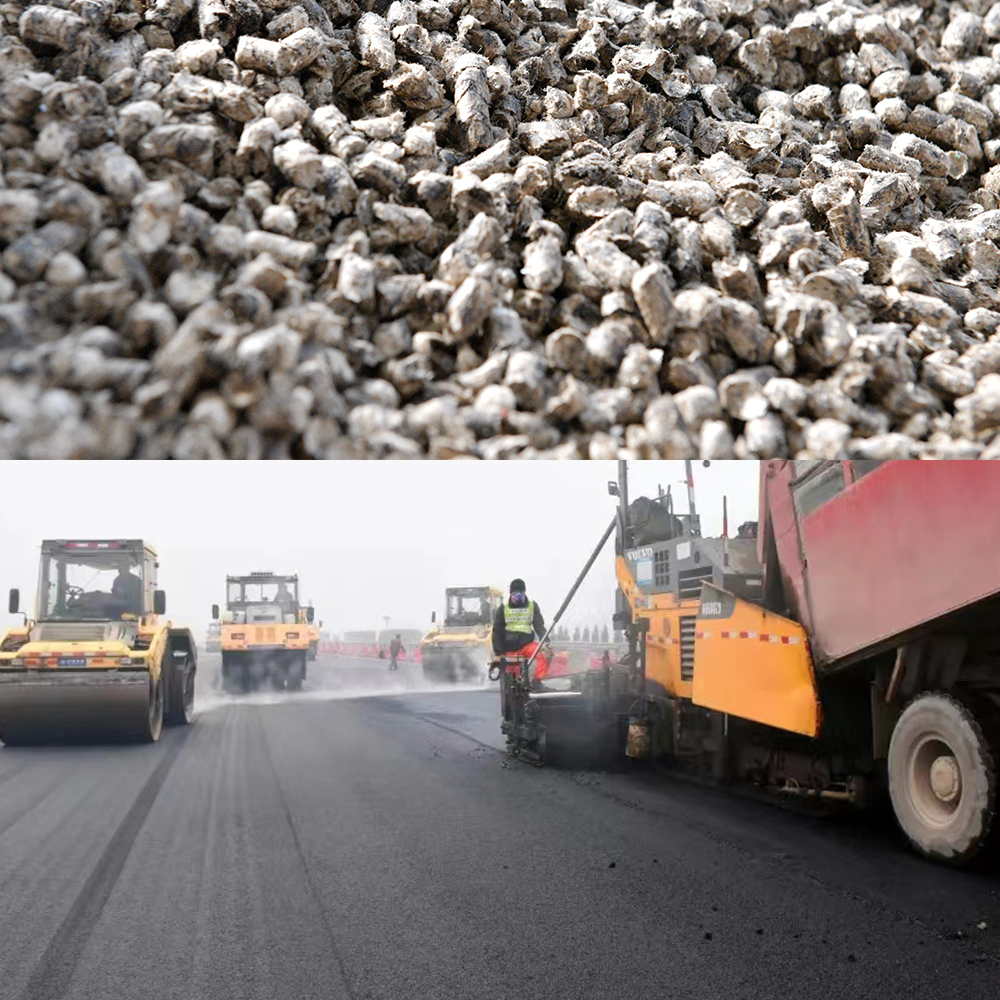Table of Contents
Benefits of Using Asphalt Polymer Additives in Pavement Construction
Asphalt polymer additives have become increasingly popular in pavement construction due to their numerous benefits. These additives are designed to enhance the performance and durability of asphalt pavements, making them more resistant to various environmental factors such as frost. When added to bitumen, these additives can significantly improve the overall quality and longevity of the pavement.
| Serial Number | Item |
| 1 | Asphalt paving Modifiers |
One of the key benefits of using asphalt polymer additives is their ability to increase the flexibility and elasticity of the pavement. This is particularly important in regions where frost heave is a common issue. Frost heave occurs when water in the soil freezes and expands, causing the pavement to lift and crack. By adding polymer additives to the asphalt mix, the pavement becomes more flexible and able to withstand the stresses caused by frost heave.
In addition to improving frost resistance, asphalt polymer additives also help to reduce rutting and cracking in pavements. Rutting occurs when the pavement becomes deformed under heavy traffic loads, while cracking can occur due to a variety of factors such as temperature changes and moisture infiltration. By enhancing the binder properties of the asphalt mix, polymer additives can help prevent these types of damage, resulting in a smoother and more durable pavement surface.
Furthermore, asphalt polymer additives can improve the overall performance of the pavement in terms of fatigue resistance and aging. These additives help to increase the viscosity of the asphalt binder, which in turn improves its ability to resist fatigue cracking and aging. This means that pavements constructed with polymer-modified asphalt are less likely to develop cracks and other forms of distress over time, resulting in a longer service life and reduced maintenance costs.
Another benefit of using asphalt polymer additives is their ability to enhance the workability and compaction of the asphalt mix. These additives improve the cohesion and adhesion of the binder, making it easier to achieve proper compaction during construction. This results in a denser and more uniform pavement structure, which is essential for ensuring long-term performance and durability.
Overall, the use of asphalt polymer additives in pavement construction offers a wide range of benefits that can help improve the quality and longevity of the pavement. From increased frost resistance to improved rutting and cracking resistance, these additives play a crucial role in enhancing the performance of asphalt pavements. By incorporating polymer additives into the asphalt mix, contractors can create pavements that are more durable, resilient, and cost-effective in the long run.
In conclusion, asphalt polymer additives are a valuable tool for enhancing the performance and durability of asphalt pavements. By improving frost resistance, reducing rutting and cracking, and enhancing fatigue resistance, these additives offer a wide range of benefits that can help extend the service life of pavements and reduce maintenance costs. Contractors and engineers should consider incorporating asphalt polymer additives into their pavement construction projects to ensure the highest level of quality and performance.
How Bitumen Pavement Frost-Resistant Additives Improve Durability and Performance
Asphalt polymer additives are a crucial component in the construction of durable and long-lasting roads. These additives are mixed with bitumen, the binding agent in asphalt, to enhance its properties and improve the overall performance of the pavement. One particular type of asphalt polymer additive that has gained popularity in recent years is frost-resistant additives. These additives are specifically designed to improve the durability of bitumen pavement in cold climates where frost heave can cause significant damage.
Frost heave is a common problem in regions with freezing temperatures, where water in the soil freezes and expands, causing the pavement to lift and crack. This phenomenon can Lead to potholes, rutting, and other forms of pavement distress, ultimately reducing the lifespan of the road. By incorporating frost-resistant additives into the bitumen mix, engineers can mitigate the effects of frost heave and improve the overall durability of the pavement.

One of the key benefits of using frost-resistant additives is their ability to reduce the permeability of the pavement. When water infiltrates the pavement and freezes, it can cause the asphalt to crack and deteriorate. Frost-resistant additives help to seal the pores in the asphalt, preventing water from seeping in and reducing the risk of frost damage. This improved impermeability not only enhances the durability of the pavement but also extends its service life, saving time and money on maintenance and repairs.
In addition to reducing permeability, frost-resistant additives also improve the flexibility and elasticity of the pavement. When subjected to freezing temperatures, asphalt pavement can become brittle and prone to cracking. By enhancing the flexibility of the bitumen, frost-resistant additives allow the pavement to better withstand the stresses of freeze-thaw cycles, reducing the likelihood of cracking and other forms of distress. This increased flexibility also helps to maintain a smooth and even surface, improving driving comfort and Safety for motorists.
Furthermore, frost-resistant additives can enhance the adhesion between the bitumen and the aggregate in the pavement mix. Strong adhesion is essential for ensuring the structural integrity of the pavement and preventing the formation of cracks and potholes. By improving the bond between the bitumen and the aggregate, frost-resistant additives help to create a more cohesive and stable pavement structure that can withstand the rigors of freeze-thaw cycles and heavy traffic loads.
Overall, the use of frost-resistant additives in bitumen pavement offers a range of benefits that contribute to improved durability and performance. By reducing permeability, enhancing flexibility, and improving adhesion, these additives help to protect the pavement from the damaging effects of frost heave and extend its service life. As climate change continues to bring more extreme weather conditions, the importance of using frost-resistant additives in asphalt pavement construction cannot be overstated. Engineers and contractors should consider incorporating these additives into their pavement designs to ensure the long-term sustainability and resilience of our road infrastructure.

